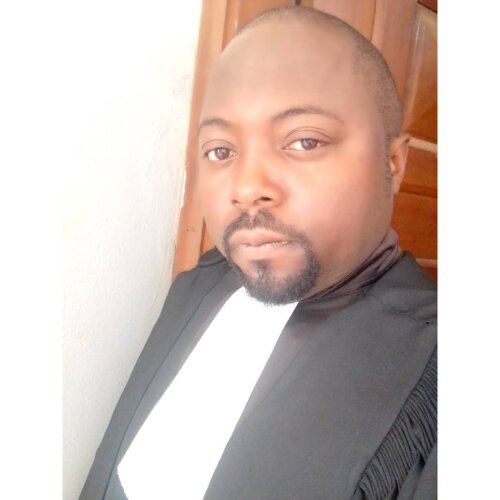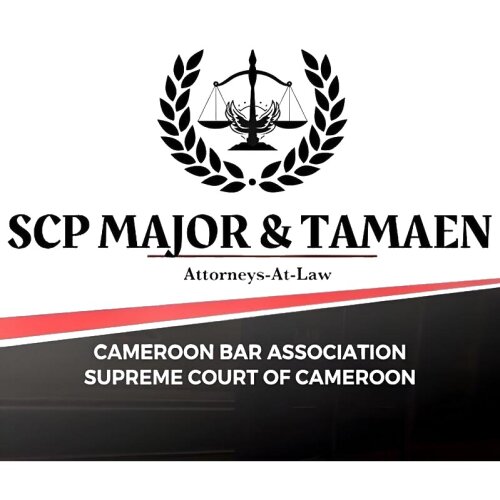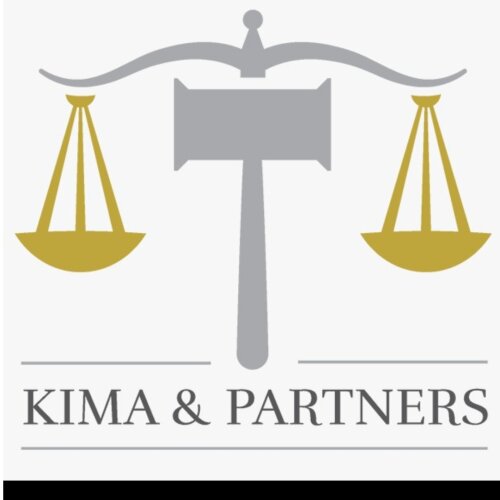Best Renewable & Alternative Energy Lawyers in Yaoundé
Share your needs with us, get contacted by law firms.
Free. Takes 2 min.
List of the best lawyers in Yaoundé, Cameroon
Legal guides written by CHI & Partners Law Firm:
- Ship Registration in Cameroon
About Renewable & Alternative Energy Law in Yaoundé, Cameroon
Renewable and alternative energy are rapidly growing sectors in Yaoundé, Cameroon. With increasing concerns about climate change and the demand for sustainable development, the government and various stakeholders are investing in solar, hydropower, wind, and biomass energy projects. The transition from traditional fossil fuels to cleaner energy sources is guided by national policies, regional commitments, and emerging legal frameworks. These frameworks seek to encourage private investment, ensure environmental protection, promote energy access, and support Cameroon's broader energy goals.
Why You May Need a Lawyer
Engaging in the renewable and alternative energy sector often involves navigating complex legal and regulatory landscapes. You may require a lawyer in situations such as:
- Securing permits and licenses for energy projects
- Negotiating power purchase agreements with government or private utilities
- Complying with land use, environmental, and zoning regulations
- Managing disputes with suppliers, contractors, or government agencies
- Understanding foreign investment rules and incentives
- Handling intellectual property matters relating to patented technologies
- Addressing labor, community engagement, or compensation issues
- Facilitating access to government incentives or grants
A legal expert can help you comply with local laws, protect your interests, and successfully advance your renewable energy ambitions in Yaoundé.
Local Laws Overview
Renewable and alternative energy in Yaoundé are primarily regulated by national and regional statutes enacted by the Republic of Cameroon. Key aspects include:
- Sector Regulation: The Ministry of Water and Energy (MINEE) oversees the sector, with key legislation such as the Electricity Law, which governs electricity production, distribution, and marketing.
- Licensing: Energy projects, especially those connecting to the national grid, require permits and licenses from relevant authorities.
- Environmental Impact Assessment: Developers must conduct impact studies in accordance with the 1996 Environmental Management Law to protect ecosystems and local communities.
- Incentives: There are fiscal and customs incentives for renewable energy investments, including tax exemptions for certain equipment and raw materials.
- Land Acquisition: Land use and acquisition for renewable energy projects are governed under the Land Tenure Law, ensuring fair processes for communities.
- Decentralization: Local authorities are increasingly empowered to manage rural electrification and community-based renewable energy projects.
Navigating these regulations requires up-to-date legal expertise, especially as policies continue to evolve.
Frequently Asked Questions
What types of renewable energy are popular in Yaoundé, Cameroon?
Solar, hydropower, and biomass are the most popular renewable energy sources in Yaoundé, with wind and small-scale hydropower projects also gaining ground.
What government authority regulates renewable energy projects?
The Ministry of Water and Energy (MINEE) is the primary regulatory authority, working with agencies like ARSEL (electricity sector regulator) and the Ministry of Environment.
Do I need a special license to start a renewable energy project?
Yes, most projects require licenses or permits from MINEE and ARSEL, depending on the size and nature of the project.
Are there tax incentives for renewable energy investments?
Yes, Cameroon offers customs and tax incentives for renewable energy equipment and related investments to encourage sector growth.
Is an environmental impact assessment mandatory?
Yes, environmental impact assessments are required by law for most renewable energy projects to ensure environmental and social protection.
How is land for energy projects acquired?
Land can be acquired through negotiation or leases, with approval processes involving local authorities and adherence to Land Tenure Law requirements.
Are there opportunities for community-based renewable energy projects?
Yes, policy frameworks support community-led projects, especially in rural areas, with technical and financial support from government and development partners.
Can foreign investors participate in Cameroon’s renewable energy sector?
Foreign investment is welcome, subject to compliance with regulatory requirements, local content rules, and partnership with Cameroonian entities in certain cases.
What happens if there is a dispute in a renewable energy project?
Disputes may be resolved through negotiation, mediation, or litigation in Cameroonian courts. Arbitration may be used if included in contracts.
How can I stay informed about regulatory changes?
You can consult government bulletins, sector publications, or retain a local legal advisor to receive updates on relevant legal and regulatory changes.
Additional Resources
For more information or support related to renewable and alternative energy law in Yaoundé, consider contacting the following:
- Ministry of Water and Energy (MINEE)
- Electricity Sector Regulatory Agency (ARSEL)
- Ministry of Environment, Nature Protection and Sustainable Development
- Cameroon Chamber of Commerce, Industry, Mines and Crafts
- Renewable energy industry associations in Cameroon
- The African Development Bank and World Bank Cameroon Offices for project financing advice
- Local universities and research centers focused on energy policy
Next Steps
If you require legal assistance in renewable and alternative energy matters in Yaoundé, begin by clearly identifying your needs, such as project development, investment, or compliance. Gather all relevant documentation and research potential legal advisors with expertise in the field. It is advisable to consult a lawyer familiar with Cameroon's renewable energy and environmental laws. Consider arranging an initial consultation to discuss your project or concerns and to determine the scope of legal services required. Staying proactive and informed will help you navigate the legal landscape and achieve your objectives in the renewable and alternative energy sector.
Lawzana helps you find the best lawyers and law firms in Yaoundé through a curated and pre-screened list of qualified legal professionals. Our platform offers rankings and detailed profiles of attorneys and law firms, allowing you to compare based on practice areas, including Renewable & Alternative Energy, experience, and client feedback.
Each profile includes a description of the firm's areas of practice, client reviews, team members and partners, year of establishment, spoken languages, office locations, contact information, social media presence, and any published articles or resources. Most firms on our platform speak English and are experienced in both local and international legal matters.
Get a quote from top-rated law firms in Yaoundé, Cameroon — quickly, securely, and without unnecessary hassle.
Disclaimer:
The information provided on this page is for general informational purposes only and does not constitute legal advice. While we strive to ensure the accuracy and relevance of the content, legal information may change over time, and interpretations of the law can vary. You should always consult with a qualified legal professional for advice specific to your situation.
We disclaim all liability for actions taken or not taken based on the content of this page. If you believe any information is incorrect or outdated, please contact us, and we will review and update it where appropriate.













